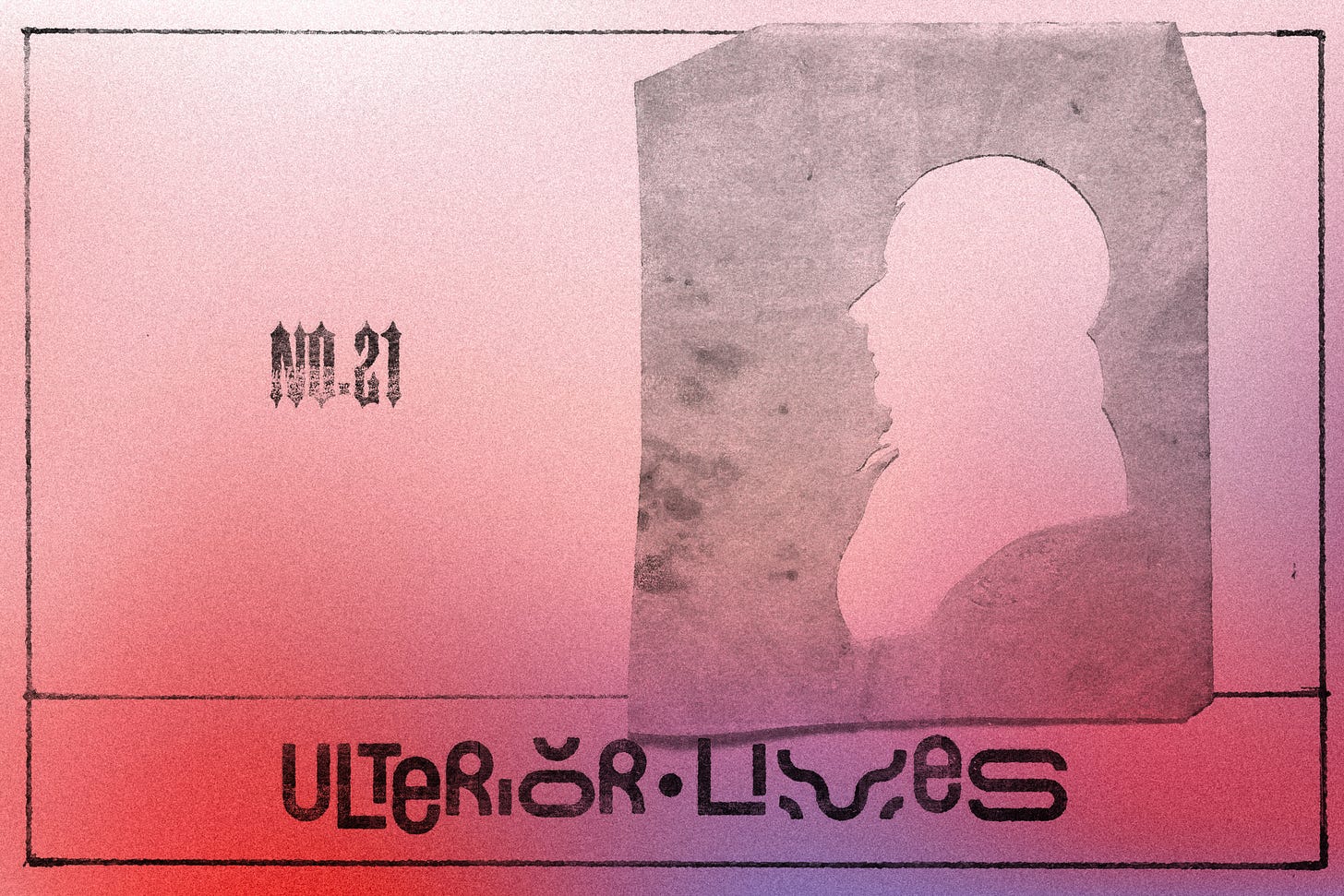St Augustine's Exceptions
The necessary paradox of every hierarchical power structure is this: that the person in charge has at least a toe outside the law.
Part 21 of our Ulterior Lives series: A Slow Research Project into The Outsider Politics of Monasticism. Read the introduction here.
“Do not call anything your own, but hold all that you have in common […] not to all alike, because all have not the same strength, but to each one according to his needs [...] When those who owned something in the world come to the monastery, let them place it willingly in common.”
About a hundred years after the Rule of St Pachomius comes the Rule of St Augustine. It is the shortest and neatest I have read. In that sense at least, it is exemplary of any Rule that seeks to be a light scaffold for common life.
Evidently, the monastery was a structure of radical redistribution, but a program of economic levelling is in vain where the social hierarchies persist afterward in their subtler forms.
Augustine’s Rule is acutely aware of the reflexive patterns by which social hierarchies persist among groups who have already renounced property and redistributed their wealth. And so, says Augustine, the monk who has come from wealth should not look down on those who entered the monastery out of poverty, as though they were their patrons:
“Let them not become proud because they have given the community some of their wealth, lest their pride in sharing it with the monastery be greater than if they had enjoyed it in the world. For every other kind of sin is concerned with the commission of evil deeds: but pride infects even good works in order to destroy them. And what use is there in giving generously to the poor, even becoming poor oneself, if the miserable soul is made prouder in despising riches than it was in possessing them?”
On the other hand, regarding those of humbler origins:
“Let them not become proud because they associate with those they did not dare to approach in the world. But let them raise their hearts to heavenly things, not seeking the vanities of the world. Otherwise our monasteries will prove an advantage to the rich but a hindrance to the poor if the rich are humbled there, and the poor become proud.”
In Augustine’s Rule we have a compelling vision of how material redistribution might be enacted and how social hierarchies might be dismantled, beyond a world arranged in categories of private property. In this miniature political economy, another order is not imposed upon a state by force, but is developed by mutual consent within the smaller circle of community relations.
There is a shadow here though. Having carefully unmade the order of homo-economicus, Augustine’s Rule makes jolting concessions to other hierarchies, notably those associated with religious and political power. Chapter six of the Rule is dedicated to asking pardon and forgiving offenses. It is insisted that, to keep the harmonious relations of common life healthy, the one who wrongs another should apologise, and one who is wronged should forgive. However, an exception is made for the Superior in this instance. To the Superior, Augustine writes this:
“When the need of discipline forces you to use harsh words in correcting those who are subject to you and you feel you have been too harsh, you are not required to beg forgiveness of them, lest the authority of him who must rule be lessened in the eyes of those who must be subject, while too much attention is given to humility.”
Can you imagine Macarius or Arsenius or Moses the Black speaking of too much attention given to humility? I should think not. But the birth of Rule brings with it cares that the hermits were able to deftly pass by. Now there were new masters to attend to. Everything depended on the authority of the Rule and of the Superior, its custodian. The matter of humility and of truthful relationships are now held in balance against the demands of a power structure, and so the Superior might occasionally find themselves in a state of exception from some of the rules. This is the necessary paradox of every hierarchical political economy. The sovereign always has at least a toe outside the law. It is written quite plainly in Augustine’s Rule, which was read weekly and voluntarily accepted by all parties.
This concession to power is enshrined in a principle that has been at the heart of political power throughout history: that the Ruler or the Sovereign is representative of God, or the gods, in some exclusive way, and that they must be obeyed as divinity itself:
“Obey your superior as a father, with all due reverence, lest in his person God be offended…”
Not your friendly Instagram mystic
Christian mystics have a curious magnetism in these troubled times. Can we understand them on their own terms? A reflection on St Paul of the Cross...








